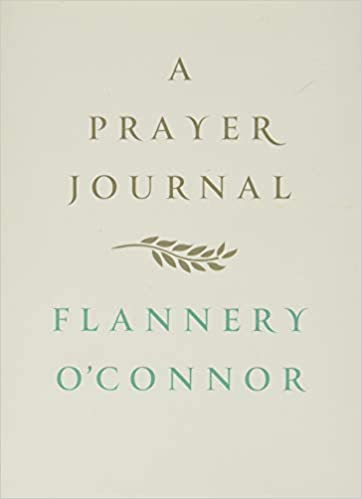Compiled from a hand-written fragmented notebook found among her possessions, O’Connor never intended this journal as anything more than a personal reflection or prayer diary for her own spiritual exercise. Incredibly short, horrid grammar, stream of consciousness sentence fragments – and yet this should be required reading for any Christian artist, entrepreneur or possessor of deep-seated ambition. All of the writing flaws make this book fascinating and encouraging, and despite them the text is clear and understandable. For artists and anyone with a secret ambition, it is encouraging to see how unsure of her own talent Flannery O’Connor was.
Subscribe to Our FREE Email & Get Weekly Catholic Books for as little as $1
At the time she was studying at The Iowa Writer’s Workshop. She had just turned twenty-one and had her first story, The Geranium, accepted for publication. She wrote this journal sporadically for about a year and half starting in 1946. Through these entries we gain an intimate window in the mind of one of America’s great writers at a time when is young and unproven even – no – especially to herself.
Structurally, the book follows the four parts of a prayer: adoration, contrition, thanksgiving, and supplication. Reading along becomes itself an act of prayer, with O’Connor leading us through a meditation on each of these stages, with focus on a vocation in the arts. However, the way O’Connor writes about her writing vocation is general enough that anyone with a dearly held personal ambition will find these prayers relatable.
She models how to marry personal craft and ambition with humility, submission to God and a personal path to sainthood. Though the book is not a picture of grammatical perfection by any means, it is very clear and easy to understand. Reading it felt like I was sitting on O’Connor’s front porch while she shared her worries with me as though I were a good friend. Much like her novels, there is a self-deprecating humor that runs throughout. The last entry even ends with her calling herself out for being a glutton for eating Scotch Oatmeal cookies that day, though she never specifies the number. In one entry, she’ll write a soul-shattering prayer, and the next day her entry will be about how embarrassed she is that she ever wrote something so pretentious.
Pretentious or not, it is all beautiful and encouraging. The following excerpt I found so moving that I wrote it down and hung it up above my writing desk. I cannot think of a better way of summarizing my review than to end with her words.
Subscribe to Our FREE Email & Get Weekly Catholic Books for as little as $1
4/14/1947
“I must write down that I am to be an artist. Not in the sense of aesthetic frippery but in the sense of aesthetic craftsmanship; otherwise I will feel my loneliness continually- like this today. The word craftsmanship takes care of the work angle and the word aesthetic, the truth angle…It will be a life of struggle with no consummation. When something is finished, it cannot be possessed. Nothing can be possessed but the struggle. All our lives are consumed in possessing struggle but only when the struggle is cherished and directed to a final consummation outside of this life is it of any value. I want to be the best artist it is possible for me to be, under God… Dear God please help me to be an artist, please let it lead to you.”
Join Here for FREE to Never Miss a Deal
Find new favorites & Support Catholic Authors




